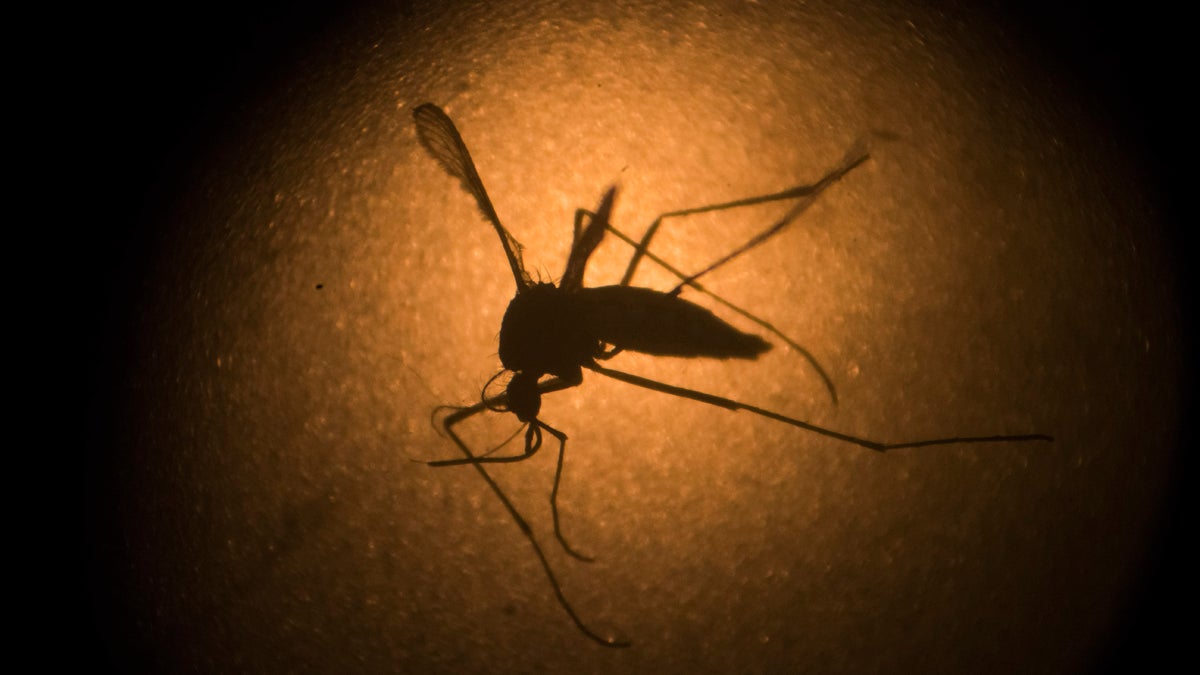Area Zika cases pose no threat, but Delaware health official cautions travelers
Listen
An Aedes aegypti mosquito is photographed through a microscope at the Fiocruz institute in Recife, Pernambuco state, Brazil. The mosquito behind the Zika virus seems to operate like a heat-driven missile of disease. Scientists say the hotter it gets, the better the mosquito that carries Zika virus is at transmitting a variety of dangerous illnesses. (Felipe Dana/AP Photo, File)
Pennsylvania and Delaware reported their first cases of Zika this week. Health officials stress the cases pose no threat to the public, but are reminding those traveling to Zika-affected regions to take preventive measures.
The two cases in Pennsylvania and one in Delaware involved travel to a part of the Caribbean or Americas that’s been affected by the virus. The females affected all experienced mild symptoms. Another case was confirmed in New Jersey.
“This is not unexpected given the number of reported cases nationally and internationally,” said Dr. Karyl Rattay, head of Delaware’s Division of Public Health. “Additional Delaware lab-confirmed cases are possible, given the level of international travel these days.”
Rattay and colleagues across the state line emphasize that there is no threat of local infection from these cases.
Officials did not release many more details other than that the woman in Delaware was not pregnant, but Philadelphia’s health department is not aware of any cases among area residents.
Nationwide, about three dozen Zika cases have been confirmed. All have been travel related. Pennsylvania has submitted more than 20 blood samples to CDC labs for testing. Delaware did not specify a number.
The Zika virus is mainly transmitted through mosquito bites, and the mosquito linked to the outbreaks does not exist in this region. Even so, area environmental specialists are amping up mosquito-control efforts that are already in place, thanks to West Nile virus. (Mosquito season doesn’t start until April.)
Meanwhile, Zika symptoms are generally mild and can include a fever, rash, joint pain and conjunctivitis.
“This is not an illness as severe as influenza, where we see a high fever, aches and pains,” said Rattay.
Most people don’t experience anything, but scientists have been concerned about the virus’ possible link to serious birth defects in the newborns of infected moms in Brazil. A few cases of Guillain-Barre syndrome have also been reported.
State officials — in line with CDC guidelines — are advising pregnant woman to postpone travel to affected parts of the Americas and the Caribbean. If a pregnant woman does go to that area, they recommend she get tested, even if she doesn’t have symptoms, when she returns.
And because in rare instances the virus may be transmitted sexually, officials are advising men who have traveled to affected regions to take steps to prevent the spread of the virus, such as by using condoms.
More than anything, Rattay stressed, the best way to avoid zika and other viruses while traveling to affected areas is to take measures to prevent mosquito bites in the first place. That includes using insect repellent containing DEET and sleeping under nets.
WHYY is your source for fact-based, in-depth journalism and information. As a nonprofit organization, we rely on financial support from readers like you. Please give today.

